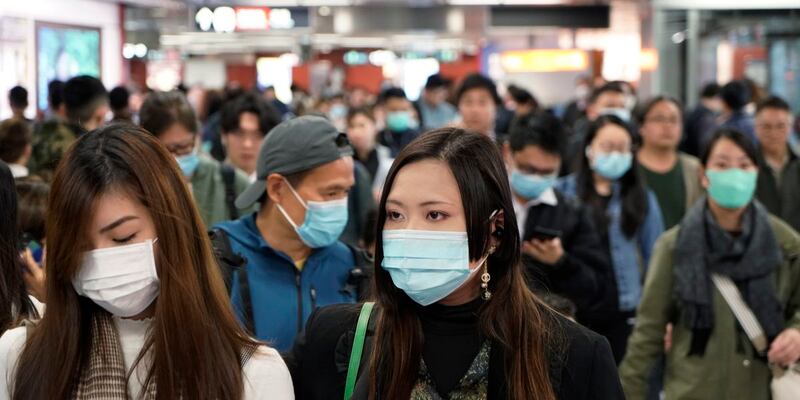Coronavirus has killed more than 400 people in China and infected at least 20,000 worldwide, and the number continues to grow. The mysterious virus is believed to have originated in Wuhan, China, which is now under “lockdown” in an effort to contain the deadly virus. The virus has since spread to the United States, Japan, South Korea, Vietnam, Singapore, Malaysia, Nepal, France, Germany, Canada, Australia and Sri Lanka.
The Centers for Disease Control and Prevention announced that Boston Logan International Airport is one of 20 airports in the US now screening passengers for the virus. Other airports now screening include, Anchorage, Seattle, San Francisco, Los Angeles, San Diego, Honolulu, El Paso, Dallas, Houston, Minneapolis, Chicago, Detroit, Atlanta, Miami, San Juan, Washington DC, Philadelphia, New York, and Newark.
Last week, the Massachusetts Department of Public Health sent an alert to local doctors saying:
“At this time, the risk to residents in Massachusetts is low... There are no immediate plans to begin screening at Boston Logan International Airport."
— Mass. DPH
Some people, however, had to go through screenings at Logan Airport Wednesday night. Massport officials tell us the screen was precautionary and everyone is OK. The Boston Public Health Commission told us it is closely monitoring the outbreak and “will continue to coordinate with our partners at the local, state and federal level, including the Massachusetts Department of Public Health and the CDC.”
Here is what you need to know about the coronavirus:
Symptoms
Common human coronavirus, including types 229E, NL63, OC43, and HKU1:
According to the CDC, the common human coronavirus causes symptoms similar to the common cold:
- Runny nose
- Headache
- Cough
- sore throat
- Fever
- A general feeling of being unwell
Human coronaviruses can sometimes cause lower-respiratory tract illnesses, such as pneumonia or bronchitis. This is more common in people with cardiopulmonary disease, people with weakened immune systems, infants, and older adults.
Other human coronaviruses: MERS-CoV and SARS-CoV:
Two other human coronaviruses have been known to cause more severe symptoms.
MERS symptoms usually include:
- Fever
- Cough
- Shortness of breath
Officials say this often progresses to pneumonia. About three or four out of every 10 patients reported with MERS have died, according to the CDC.
SARS symptoms often include:
- Fever
- Chills
- Body aches
CDC officials say this also usually progressed to pneumonia, but that no human cases of SARS have been reported anywhere in the world since 2004.
Diagnosis
The CDC says healthcare providers may order laboratory tests “on respiratory specimens and serum (part of your blood) to detect human coronaviruses. Laboratory testing is more likely to be used if you have severe disease or are suspected of having MERS."
Transmission
Human coronavirus is most commonly spread from an infected person to others through:
- The air by coughing and sneezing
- Close personal contact, such as touching or shaking hands
- Touching an object or surface with the virus on it, then touching your mouth, nose, or eyes before washing your hands
- Rarely, fecal contamination
According to the CDC, “in the United States, people usually get infected with common human coronaviruses in the fall and winter. However, you can get infected at any time of the year. Most people will get infected with one or more of the common human coronaviruses in their lifetime. Young children are most likely to get infected. However, people can have multiple infections in their lifetime.”
Prevention
There are currently no vaccines available to help protect against human coronavirus infection. Health officials say you should:
- Wash your hands often with soap and water for at least 20 seconds
- Avoid touching your eyes, nose, or mouth with unwashed hands
- Avoid close contact with people who are sick
If you have cold-like symptoms, officials say you should:
- stay home while you are sick
- Avoid close contact with others
- Cover your mouth and nose with a tissue when you cough or sneeze, then throw the tissue in the trash and wash your hands
- Clean and disinfect objects and surfaces
Treatment
According to the CDC, there are no specific treatments for illnesses caused by human coronavirus. Most people with common coronavirus will recover on their own, however, the CDC says you can:
- Take pain and fever medications (Caution: do not give Aspirin to children)
- Use a room humidifier or take a hot shower to help ease a sore throat and cough
If you are mildly sick, you should
- Drink plenty of liquids
- Stay home and rest
If you are concerned about your symptoms, you should see your healthcare provider.
>> More: Coronavirus: Death toll continues to climb, 6 things you need to know
© 2020 Cox Media Group








